If society collapses, which skills will you wish you’d learnt?

Here’s a conversation between Dave of Lowimpact.org and Nigel Berman of ‘School of the Wild’. Nigel teaches appreciation of nature and wilderness, and he’s provided us with information for our topic introduction on ‘firecraft’. I wanted to talk about what skills would be most useful if global civilisation collapsed entirely and we were back to relying on nature and our own skills and ingenuity to survive.
Lowimpact: So Nigel – do you think there’s a chance that society might collapse?
Nigel: I think there’s definitely a chance, and it wouldn’t really take that much – the internet going down, for example.
LI: What do you mean?
NB: So much of our food supply, our transport, our energy etc. is dependent on the internet, and if it stopped working, most of our urban populations would be in chaos within a day or two. There was a play on Radio 4 a few months ago. The internet went down – due to a terrorist attack, and the woman in the story was waiting for it to come back up. But then she slowly realised that it was never coming back. It was amusing at first, in a ‘back-to-the-twentieth-century’ sort of way, and there was camaraderie, until people started to realise that they couldn’t get any cash out, food started to run out, and everything started to feel unsafe. So if just one piece of technology fell over, that would put millions of people at risk, and we’d be back to barbarism quite quickly. I know people in the ‘prepper’ movement (although I’m not one myself) – they’re preparing for collapse by sealing food in vacuum bags and storing them.
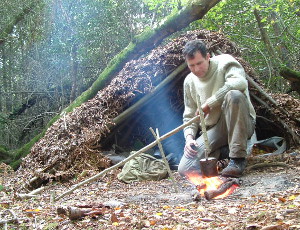
LI: Anything else?
NB: Donald Trump doesn’t believe climate change is happening, so he’s likely to roll back the little that America has been trying to do to mitigate it. Desertification, biodiversity loss and soil erosion could undermine the earth’s ability to feed even a few hundred million of us, let alone billions. Other things could do it too – like terrorism, nuclear war or hacking for example.
LI: Yes, I was thinking about that. The threat from climate change is bad enough, without a US president who doesn’t believe in it. The population of Africa was 477 million in 1980, is currently 1.2 billion, and its projected population is over 3 billion. This will happen at a time when desertification and warming is turning the continent into a dustbowl, so there will be an exodus of people such as we’ve never experienced before. As the population growth and the effects of climate change kick in everywhere, and nature starts to collapse around us (the 2016 WWF Living Planet report is telling us that we’ve lost 58% of all vertebrates – that’s everything from fish up – since 1970, and it’s not slowing down), and throw in soil loss, a few wars and nuclear accidents, and it’s difficult to know where they’re going to go. But there are going to be billions of people on the move. The problems we have today are nothing to what lies ahead.
NB: And in this country, we only produce around half of our own food, and that’s bound to go down as population grows and soil erodes (we’re losing over 2 million tonnes of soil per year in the UK), so we’re not going to be able to feed ourselves if we can’t get food from abroad.
LI: So what skills do you think are going to be the most important if we have to fend for ourselves after system collapse?
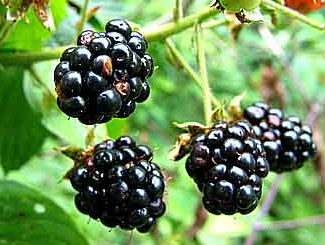
NB: Well you have to look at the things you need to survive, and how long you can do without them. Then you can see which skills will be most essential. In bushcraft circles, we talk in terms of threes – so we can survive for:
- 3 minutes without oxygen
- 3 hours without shelter (in harsh conditions – say snow or extreme heat)
- 3 days without water
- 3 weeks without food (that would be tough though)
So survival priorities in this order I’d say:
- shelter
- water- finding, collection, sterilisation
- fire
- food
LI: Where can you learn how to make a shelter?
NB: There’s a lot of information online, and courses around the country on bushcraft and survival – including shelter building, firecraft and wild food foraging. Building a basic shelter could be common sense – branches, leaves, turf etc. You could learn some more sophisticated techniques on a course, but even without them, you should be able to knock something together to protect you from the worst of the weather. You need to make sure you’re not going to freeze – especially at night. Body temperature is very important. If it’s raining, it will sap your energy. You need to build your shelter while you still have energy, because it will involve cutting branches, dragging and lifting material etc. You don’t want to be exhausted without a shelter.
LI: And what about water – I suppose you’d be looking for rivers and lakes – but how would you purify it?
NB: Once you’d built a basic shelter, you’d have to get your water supply sorted within three days – and that includes finding it and making it drinkable. When you get dehydrated you get tired quickly and you can’t think straight or make good decisions, and so it’s essential to do it quickly. You’d never know whether water was safe to drink – and in a post-collapse scenario, all kinds of toxic materials could be leaching into rivers. You can buy off-the-shelf water purification kits, from chemicals to pumps that force the water through a filter. If you’re lucky enough to have one with you, it could last for many years and purify thousands of litres of water. I guess most people won’t be that lucky though – so you’d have to make something. You can make a basic filter out of a plastic bottle. You can cut the bottom off, then turn the bottle upside down, with the narrow opening at the bottom, and make some holes in the lid. Fill with different grade material, from gravel down to sand. When the water passes through it, larger impurities and particles are removed, but it won’t kill bacteria. For that you’ll need to boil it, and for that you’ll need to know how to create fire.
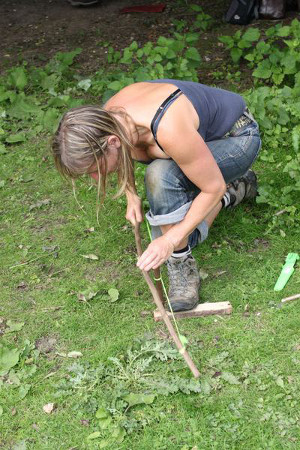
LI: Have you tried it yourself?
NB: Yes, I made a filter as described above, with moss at the bottom so that the holes don’t get blocked, then fine sand, followed by gravel, stones, and even bits of pine cones. The water looked dirty when it was poured in, but came out clean. I then boiled it, allowed it to cool, and it was fine. Practice is key – the more you practise, the better you get at it.
LI: Is survival something you think about much?
NB: We’re not a ‘hard’ bushcraft organisation – for us it’s not about survival, but about appreciating nature. We believe that if enough people reconnect with nature and learn to love it, we might turn things around and avoid collapse. I’m not saying I’m optimistic about this, it’s just our angle. We sometimes do things around firecraft, shelter or water purification to inspire people – and those skills will be useful if you get lost in the woods, for example. Getting lost is different from a collapse scenario, in that it’s hopefully not for the rest of your life, and getting rescued or finding your way back to safety is just as much a priority as survival, so navigation skills will be important in this case.
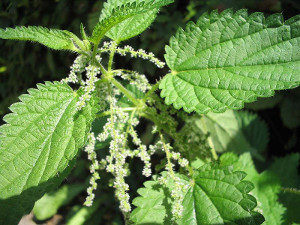
LI: So next – fire or food?
NB: I’d say fire, but it would depend on specific circumstances. If it’s very dry and warm, maybe focus on food. But generally, I’d say first gather materials for a fire and put them in the shelter to stay dry, then maybe go off to find food. You’ll need a fire to keep yourself dry and to purify water. You’re going to have to have learnt firecraft skills before collapse, because you’re not going to be able to work it out on your own without having practised it. Again, there are lots of places around the country that run courses.
LI: So then it’s down to finding food – how would you go about that?
NB: And again, if you haven’t learnt which plants are good to eat and which aren’t, you’re not going to do well using trial and error. So it’s best to gain that knowledge while you can, and certainly before any kind of disaster strikes. You need to get foraging skills – there’s an awful lot you can eat in the way of plant material. Berries, fruit and nuts are obvious, but there is food to forage in all seasons. In spring, all the energy of the plant is in the shoots; in the summer, flowers; in autumn, berries, fruit and nuts; and in winter, in the roots. For example, nettle shoots are good in the spring, flowers in summer and seeds in the autumn – and nettles tend to grow all year round, so you can sometimes still find shoots in the winter. People tend to assume that everything is poisonous unless shown to be otherwise – and maybe this was instilled into kids to stop them eating something unless they were sure it was edible. It’s not good to be blasé about some things – for example mushrooms, some of which can kill you relatively quickly after eating just a small amount. But other things are generally assumed to be poisonous, but they’re not – yew berries, for example. The seed is poisonous, but the red flesh of the fruit isn’t. It’s delicious in fact. But you must remember to spit the seed out, and so maybe children have always been told that yew berries are poisonous in case they eat the seed. If you go on a foraging course, it’s better than using a book, because an experienced person will show you, and you’ll experience the plant with all your senses – touch, smell, taste, the rustle of the leaves, as well as just sight.
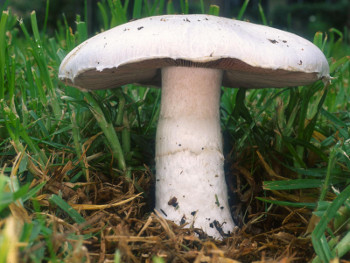
LI: Are you saying you’d just eat plant matter, and not hunt for meat?
NB: No – it’s best to eat a range of things, and if you can catch animals, including fish, you’ll stand a better chance of survival. Veganism or vegetarianism are great if you have an enormous range of foods to choose from, but in a survival situation, if you have fish and game around, it would be crazy not to try to catch them. I saw a US reality-TV programme about what life was like in 10,000 BC. There were two groups, one used to hunting and fishing, and one not. The hunting group caught lots of game and fish, with nets, traps and bows and arrows. They remained healthy and happy. The other group caught nothing, and ended up with lots of in-fighting and no energy or enthusiasm. If the situation had been real, most of them would have probably ended up dead quite quickly. Meat and fish are a good source of concentrated protein that means you don’t have to forage all day long to get enough good plant material to survive. I can’t think of any meat that isn’t edible. But whether everyone could do it, I don’t know. Meat from a supermarket is clean and vacuum packed, but killing it yourself is a messy and gruesome business. Maybe some ancient instincts would kick in if it came to survival.

LI: What would be the most important piece of kit to catch animals? A bow and arrow?
NB: I’d say a net. Cordage is one of the cornerstones of civilisation, and one of the first things that early humans learnt. It’s useful in creating nets, bags, rope, and for tying things together. If you have a net you can try to catch small animals by driving them into it or throwing it over them. And of course you can use nets for fishing. You need to gain this skill now though – and another good one might be whittling wood to make implements and flintknapping to make sharp edges for knives and arrows. I don’t know much about bow and arrow making – but again, there are courses available.
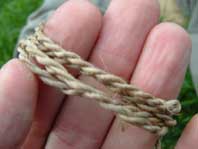
LI: What proportion of people might survive, do you think?
NB: Well, more than 80% of the UK and over 50% of the world now live in urban environment, so not many, I don’t think. We’re losing non-verbal wisdom. We forget that we’re animals and that we’re part of the ecology of this planet. We treat nature as a commodity. But we’ve evolved with nature, and being in nature somehow feels right – although we’re cutting ourselves off from it more and more.
LI: How optimistic are you that we might avoid collapse?
NB: Not very. I’d like to think that I’m doing something to help people reconnect with nature – that I’m doing something positive to help avoid collapse. But we can’t carry on the way we are. We have to change. I’m not sure most people are taking the risk seriously. It seems inevitable now that we’re going to breach lots of nature’s limits – how can we avoid it? We have an economic system geared for just growth, growth, growth – which requires more and more consumption, and unless we stop, it’s going to kill us in the end.
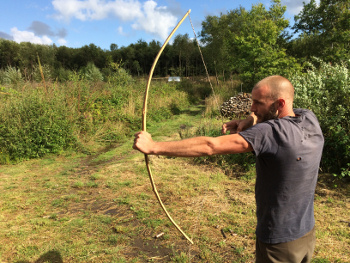
LI: I had a conversation with a guy in a pub once who asked what I did. When I told him I worked for an environmental organisation I didn’t think he was going to get it. But he said ‘yeah, we’ve been f***ing about with Mother Nature for so long now that some time soon she’s going to turn round and give us such a slap’. I thought about making that our strapline.
NB: Yes, either we get ourselves back into balance with nature, or nature will do it for us. But if we wait for nature to do it, it won’t be pretty. I have a deep grief about what’s happening. You have to tune into it though – not everyone feels it.
LI: I think collapse might mean that nature will be damaged so much that it might not be able to support humans at all. I don’t think this is too far-fetched – especially if there are no pollinators, very little soil, and biodiversity has been reduced so much that the essential connections are not there any more – predators don’t have prey, symbiotic relationships are gone, trees don’t have birds to spread their seeds etc. And so we might be looking at a desert planet. But not only that – there are now twice as many countries with nuclear weapons as when the nuclear proliferation treaty was signed in 1968 – including North Korea, Pakistan, India, Israel – and there have been nuclear weapons in Turkey and South Africa too, although controlled by other countries. And more countries are trying to develop them. It’s scary to think of a world with a booming human population, dwindling resources, collapsing ecology and lots of countries with nuclear weapons. I fear the worst. I’m not sure any humans can survive a radioactive, desert planet – and even if some do survive, they might wish they hadn’t. It seems unthinkable on such an abundant, beautiful planet, but peer-reviewed ecologists are telling us that we’re headed for ecological collapse. I’m also thinking that if some humans survive collapse, would they start the inevitable trek back to nuclear power and collapse again eventually, and keep repeating it ad infinitum?
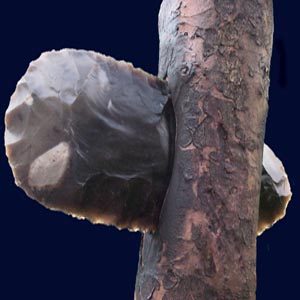
NB: That’s a pretty depressing thought – so ultimately, remembering, and a commitment to respect nature might be the most useful skills for the species. But back to the main question – what skills will be most useful. I don’t think individuals could survive alone. We’d need to re-build communities, or tribes. That will take social skills – we’d need to get on, to co-operate and work together. But history has shown that even if humans learn to co-operate in small bands, they tend to massacre each other when those bands come into contact with each other. The biggest danger to humans seems to be humans. Maybe the most important survival skill would be self-defence.
The views expressed in our blog are those of the author and not necessarily lowimpact.org's
6 Comments
-
1John Harrison November 16th, 2016
Those most likely to survive a total collapse will be fit, young ex-forces males who happen to be psychopaths. I’d last about 5 minutes!
I do believe very tough times are likely to come but not total collapse. Dig for Victory will be back as Dig for Survival.
-
2Dave Darby November 16th, 2016
Yes, because of our history of violence, aggressive genes tend to get passed on, and so we end up staring extinction in the face because we’re too aggressive and competitive for our own good. I think we need more nurturers and fewer hunters now – a swing away from the yang and towards the yin, if there’s enough time left.
Bearing in mind that 1. peer-reviewed scientists are telling us that we’re losing biodiversity so quickly (and it’s accelerating) that we’re headed for ecological collapse; 2. the West is experiencing massive soil loss because very little organic matter is going back into it; 3. it looks like we’re not going to avoid a huge rise in average global temperature; 4. population is headed towards 11 billion; 5. nuclear weapons are everywhere (and is anyone going to make sure that nuclear power stations are safe if things start to fall over, when we have a massive nuclear accident every 15 or so years even when things are supposedly working smoothly?) – what make you optimistic (wrong word I know) that we’ll ‘just’ have tough times but not collapse?
What if you dig for survival, but the soil is depleted of organic matter and microfauna, possibly radioactive, and even if you do manage to grow things, those fit, young, ex-forces males take it from you?
I know this all sounds unimaginably grim, but I’m not a ‘doom-monger’. The real doom-mongers are those who are telling us that more capitalism will sort out our problems. They’re selling us doom.
-
3Chris Gander November 17th, 2016
This has been writtten from a Western, temperate climate point of view, so I have to underline a few points from a different approach.
Quote: This will happen at a time when desertification and warming is turning the continent (Africa) into a dustbowl,
There’s a lot of ‘sand’ about now, which neglects the fact that there is a lot of space available – maybe for energy production – but it is not politically expedient to use it since Oil Companies might/will object. This space could also be used to produce food – if a modern approach to reclaiming desert is taken (cf Growboxx). Again, not politically expedient (note the issues in Ancient Egypt and the Nile)
Quote: And what about water – I suppose you’d be looking for rivers and lakes – but how would you purify it?
Well if the land is desert there ain’t a lot of water! Maybe we should be looking at different ways of gathering water. Dew traps, harnessing fog, using less water for irrigation etc. See Growboxx and Hydroponics, Aquaponics for growing fish AND vegetables.
I am trying to say that there are different approaches to the problems of survival after the apocalypse that ought to be considered. Not just hiding/sheltering in the lovely woods and forests that this article seems to think are prolific in the rest of the ‘world’. If we start to look at technical solutions now – diversification of technology as well as food – then when it comes, there are less chances of a total collapse, and more chances for the communities to survive the onslaught of the quote: Those most likely to survive a total collapse will be fit, young ex-forces males who happen to be psychopaths.
-
4Dave Darby November 17th, 2016
Yes, you’re right, this is written from the perspective of a Western temperate country, or more specifically, the UK. I don’t disagree with much of what you say, but the article was about what skills would be needed after collapse, not what we can do to avoid it. You mention ‘apocalypse’ but then talk about avoiding total collapse. I’m coming from the perspective that apocalypse (ecological or nuclear) definitely = total collapse.
Plus: ‘lovely woods and forests that this article seems to think are prolific in the rest of the ‘world’.’ – I don’t think it does.
-
5Will November 18th, 2016
What about community and other people? This article seems to take it as given that you’re going to be on your own, but with all those people on the move, surely that’s absurd? Not everyone needs to know how to make shelter AND how to find food AND how to make a fire AND how to make weapons. And how long can you survive with a knife in your throat? Negotiation and defence-from-humans skills may be more important than knowing how to build a shelter out of branches.
There’s some good ideas here, but I tire of the assumption (common in fiction, absurd in reality) that we’re each going to survive the apocalypse *on our own*.
-
6Dave Darby November 19th, 2016
Hi – that’s what Nigel says in his final comment.




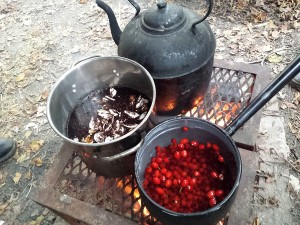 Autumn foraging season soon – here’s some inspiration
Autumn foraging season soon – here’s some inspiration
 Do you know which of these wild berries you can eat?
Do you know which of these wild berries you can eat?
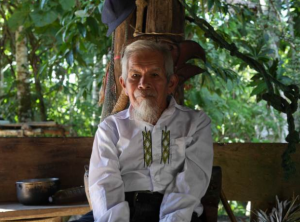 Reimagining progress: what we can learn about ‘lean thinking’ from indigenous communities
Reimagining progress: what we can learn about ‘lean thinking’ from indigenous communities
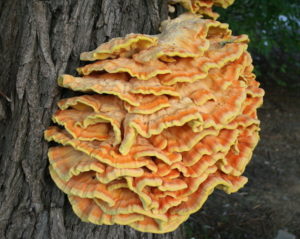 Tips for safe wild mushroom foraging this autumn
Tips for safe wild mushroom foraging this autumn
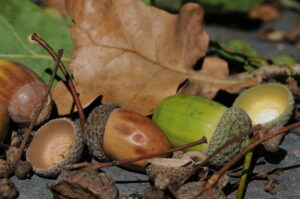 It’s a mast year!
It’s a mast year!
 Is leather tanning ethical?
Is leather tanning ethical?
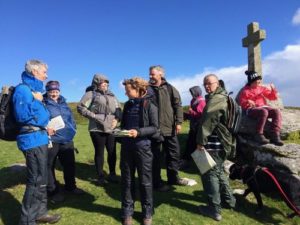 Why I walk: a conversation with a walking guide
Why I walk: a conversation with a walking guide
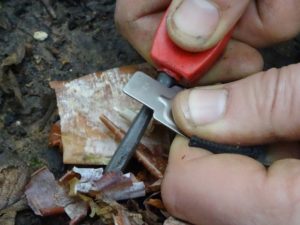 Firestarter: how to get the best from firesteels
Firestarter: how to get the best from firesteels
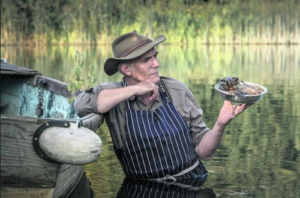 The crayfish food revolution: one man’s solution to an invasive species problem
The crayfish food revolution: one man’s solution to an invasive species problem
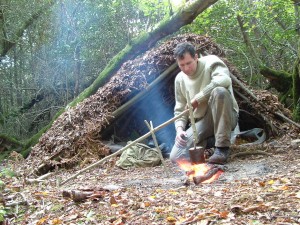 What’s the difference between survival & bushcraft?
What’s the difference between survival & bushcraft?
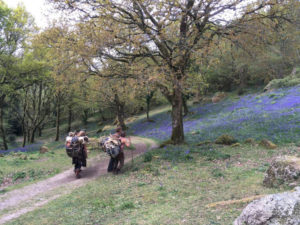 How might hunter-gatherers have lived on this land?
How might hunter-gatherers have lived on this land?
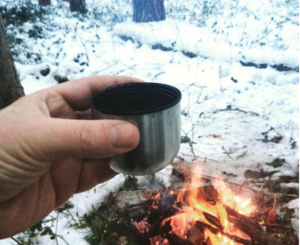 7 great reasons to try bushcraft and camping in winter
7 great reasons to try bushcraft and camping in winter
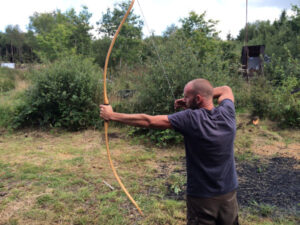 Bow making
Bow making
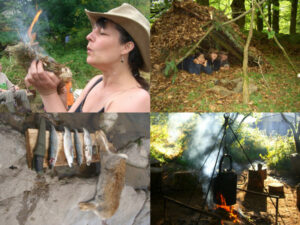 Bushcraft
Bushcraft
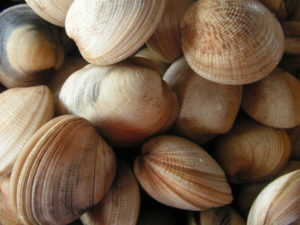 Coastal foraging
Coastal foraging
 Crayfish
Crayfish
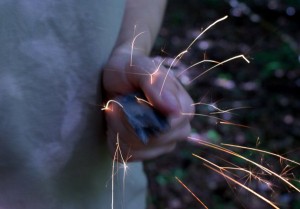 Firecraft
Firecraft
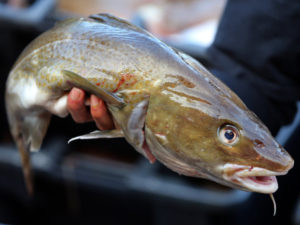 Fishing
Fishing
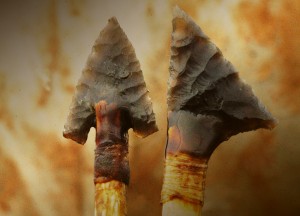 Flintknapping
Flintknapping
 Game / wild meat
Game / wild meat
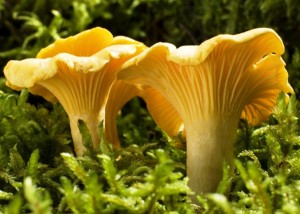 Mushrooms (wild)
Mushrooms (wild)


